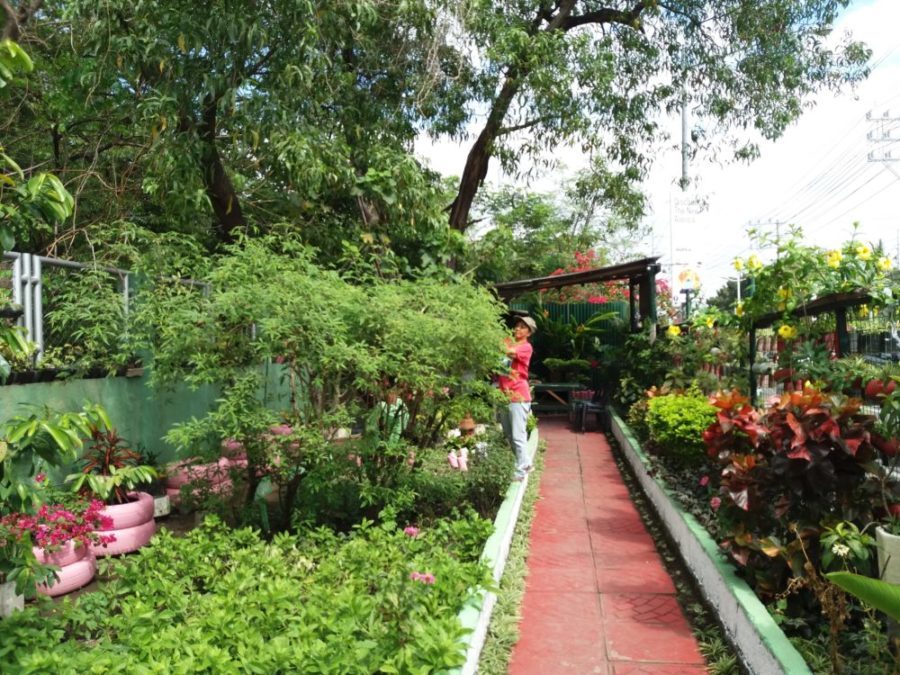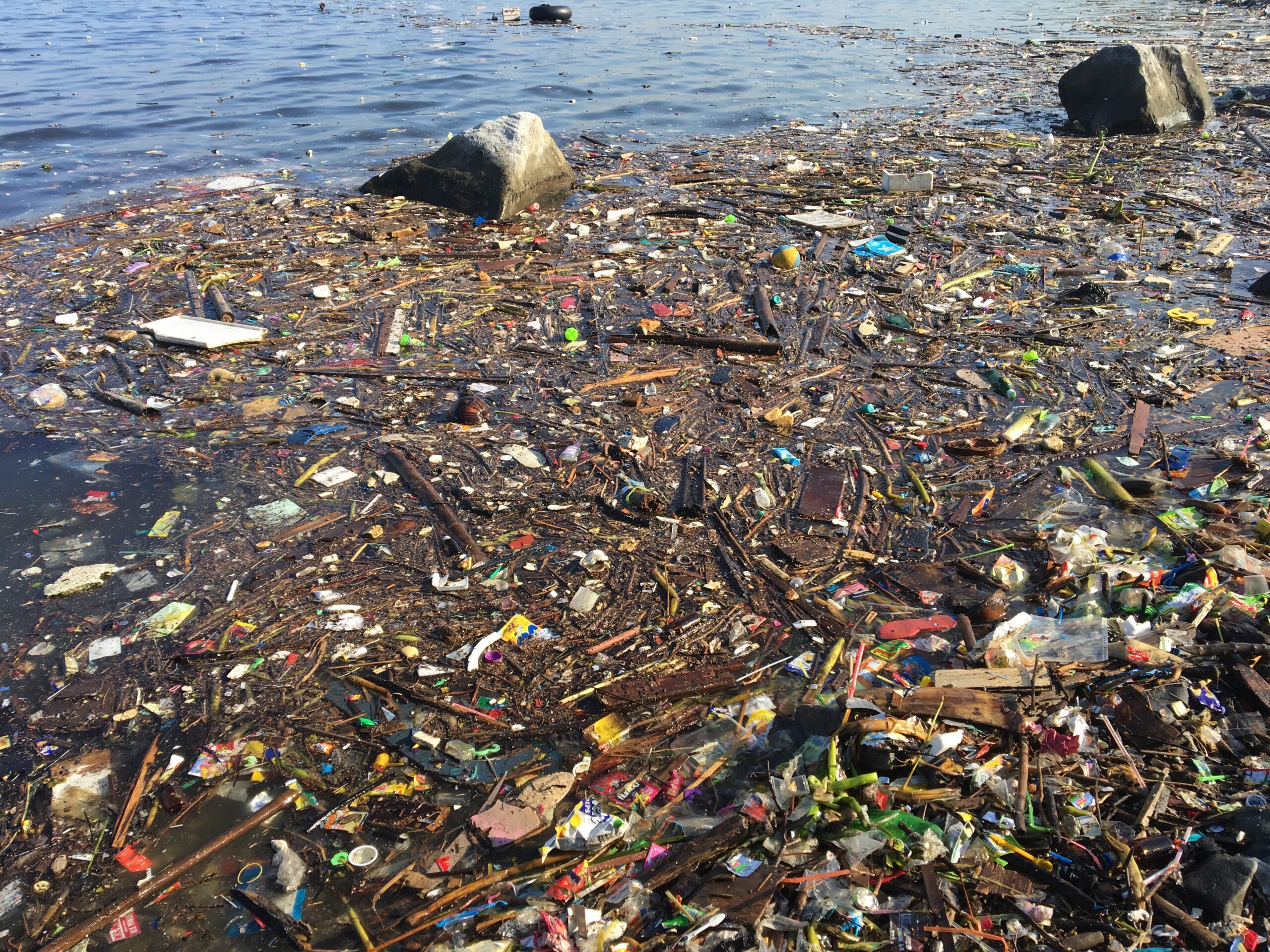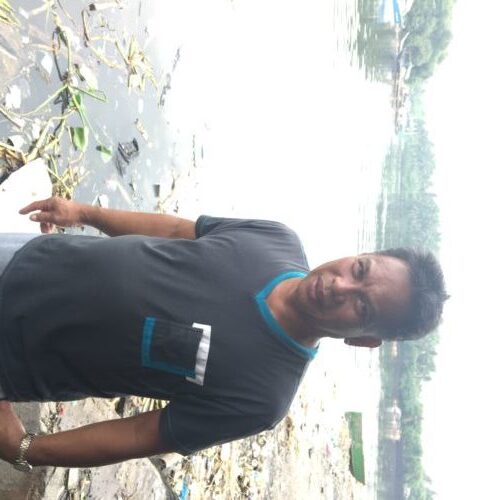My baptism of fire for this new position was during the Global Meeting held of the BFFP in Bali last July. A few days after I arrived from Europe, my first order of business was to jump into the plane and attend the meeting with almost a hundred activists from all over the world.
The four days was intense such that I got to know a lot of organizations and people working toward a plastic-free future. Despite the jet lag that I was experiencing that time and being new to the plastic pollution issue, I finished the meeting in Bali in high spirits and inspired and looking forward to working within a movement composed of dedicated people who aspire a more sustainable and equitable future.
Fast forward to the second day of August, together with my colleagues from GAIA, we visited sites of Mother Earth Foundation, a GAIA member in the Philippines wherein community mobilisers showed us around the villages of Potrero and Catmon in Malabon. The city has been known as one of the flood-prone areas in Metro Manila. Further, plastic pollution is a serious problem in rivers along the city.
We visited villages in Malabon and saw communities which have relatively been advancing in practicing zero waste at the household level by segregating waste. Trained by Mother Earth Foundation’s community mobilizers, waste pickers are then incorporated into the zero waste program as they routinely check each households’ waste segregation.
It was not that easy at first as residents are not used to segregating waste. However, little by little, I saw how the families living in these villages in Malabon change their practice. The success can also be attributed to the ground work that community organizers of Mother Earth Foundation are doing in coordination with the local village officials.
After visiting Malabon, I got to visit Fort Bonifacio in Taguig City and the city of San Fernando in Pampanga the following week. The city is adjudged as one of the Zero Waste Cities by Mother Earth and GAIA.
For these two sites, it took them only six months to achieve waste diversion – 92% for Fort Bonifacio and 78% for San Fernando. Fort Bonifacio has already been doing it for six years while San Fernando has been doing it for four years.
Their success stories are a combination of non-governmental organizations like GAIA and Mother Earth Foundation empowering communities to show that there is a way out of our waste problem particularly plastic pollution and working with local government units (LGUs) in implementing programs. It also takes political will for local leaders particularly city and town mayors to implement policies that are already in place.
My last field visit for BFFP for the month of August was in the Freedom Island in Las Pinas – where a big massive clean up will be held in the middle of the month in celebration of the International Coastal Cleanup Day on September 16.
AFFECTED COMMUNITIES. Fisherfolk like Sonny Malubag decries the decreasing catch because of plastics dumped in our oceans and seas.
As part of our ocular visit, I met Sonny Malubag, a fisherman from Bulungan in Paranaque. Having been a fisherman for more than two decades, he has seen the massive impact of plastic pollution to our marine resources. “I have been a fisherman since 1992. Back then, the garbage problem in our seas is not yet rampant. Now, whenever we go fishing and cast our nets, 60% of what we get are plastic cutleries, and wrappers. People blame us (informal communities) for this problem. But these plastics come from fast food chains. We don’t have the means to eat in these restaurants.”
Fisherfolks like Sonny bear the brunt of improper waste disposal and plastic consumption. BFFP hopes to bring ordinary people’s voices – fisherfolk and waste pickers to international conferences like the upcoming Oceans Conference in Malta in October. These events serve as platform where decisions and policies are being crafted by the world leaders and the voices of ordinary people are heard.
I left Bulungan that day disturbed. I was disturbed because of the realization that plastic pollution is a massive issue and it affects everyone. I used to campaign on food and climate justice issues in another organization. Hence, plastic pollution is something new to me. Looking at the bigger picture, these social problems are in fact interconnected. Going back to the story of Sonny, if fisherfolk like him won’t have enough catch for the day because of plastic pollution, it will directly affect their livelihoods and food security of the community.
Despite the feeling of being disturbed, I also felt inspired. I know that I am in a better place to change the status quo. It’s reassuring to know that I am part of a larger community composed of dedicated activists, enablers and thinkers, who are turning the tide on plastic pollution no matter what the cost is.
Jed Alegado is Regional Communications Officer for Asia Pacific of the #breakfreefromplastic movement.






